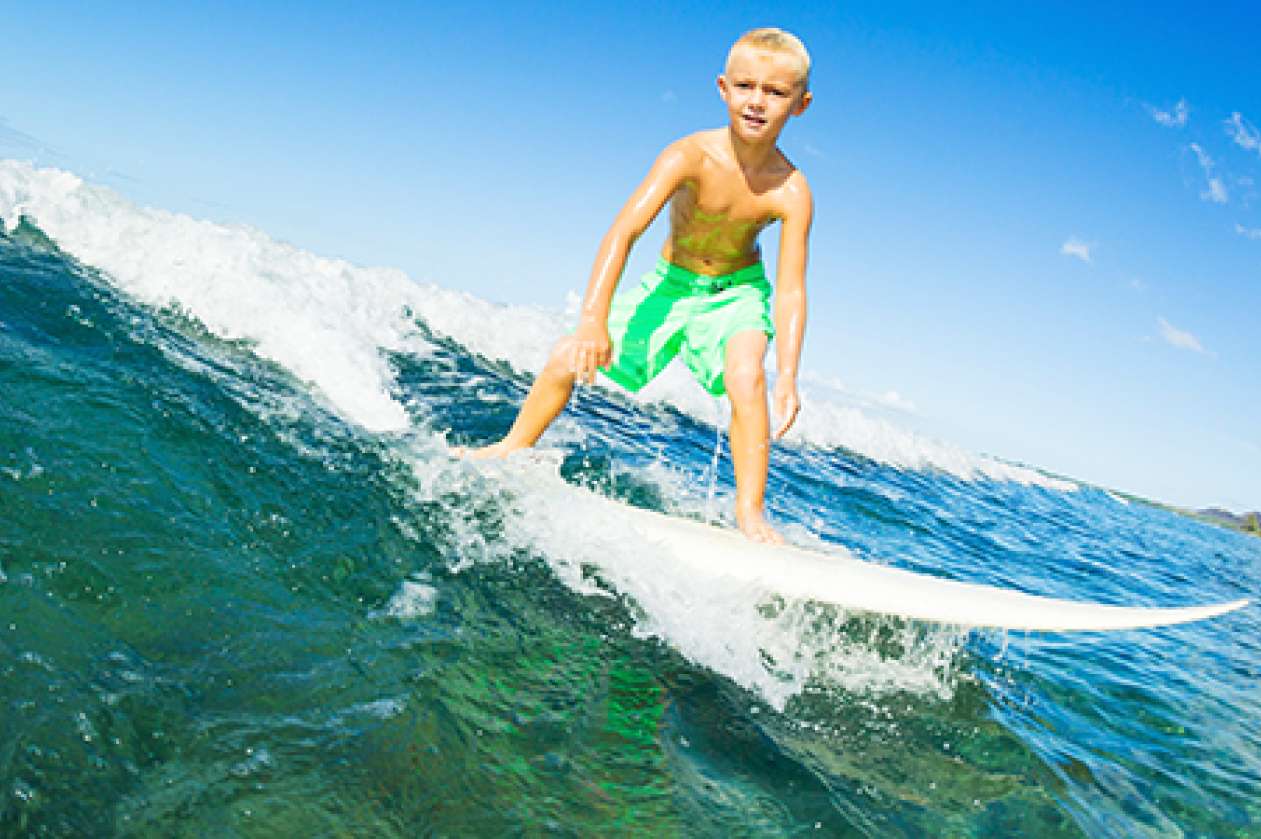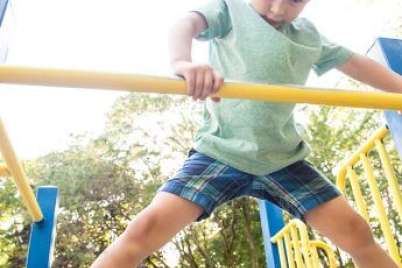
When it comes to playtime, it’s no risk, no reward
If you ever see that mother who appears to be deliberately not watching her child as the kid leaps and darts dangerously around the park, don’t judge her too harshly. She might be trying to encourage her daughter to take risks because she knows the benefits of those daredevil antics — but is also aware that in order for them to happen, said child needs to not be facing her mother’s worried eyes and panicked expression.
Ok, you got me. I’m that mother, and I’m given to, well, a little overprotection. But just because I would rather not view the riskiness, doesn’t mean I don’t get how important it is.
In Psychology Today is a fascinating article explaining the relationship between the way children play and their emotional development. The article cites studies in which young rats were exposed to all forms of social experience, excluding play time and the rats subsequently starting to “overact with fear and fail to adapt and explore as a normal rat would”, as well as similar studies with monkeys. These studies, among others, give credence to the “emotion regulation theory of play, the theory that one of play’s major functions is to teach young mammals how to regulate fear and anger so they can encounter real-life dangers, and interact in close quarters with others, without succumbing to negative emotions.”
As applied to children, then, its not just about Billy climbing a fence to prove to his friends he’s no scaredy-cat, it’s his opportunity to show himself that he can overcome his fears, so the next time he encounters a new experience, he is much more confident to take it on. Naturally, this doesn’t happen on the first try, and it isn’t something the child will understand, but with each instance that Billy takes on a new challenge in his playtime activities, he’s slowly preparing himself for more of life’s obstacles.
Conversely, for all the times we try to control children’s playtime, we’re stopping them from figuring out for themselves what they can handle, a feeling which will come to overwhelm them in non-playtime activities. It’s this trial and error on the swings, on the slide, or up a tree that encourages self-assurance that goes far beyond the school playground.
Additionally, as well-intentioned as most parents are when it comes to monitoring their children’s sports and recreation time, the author wisely points out that children are “far more likely to injure themselves in adult-directed sports”, since this often leads to specialization, which causes muscle and joint overuse; and also, because these sports, unlike self-regulated play, are often so competitive it leads kids to overcompensate in ways that endanger themselves and their teammates.
Sadly, though, it’s the author’s last point that is perhaps most salient: in today’s overcautious society, kids don’t have the same freedom to run amok, explore on their own, or simply play without supervision, and the author believes this change to over-directed play is arguably affecting children’s emotional well-being. She even has the disturbing statistics to prove it: “five to eight times as many young people today suffer from clinically significant levels of anxiety and depression, by today’s standards, than was true in the 1950s.” Can this really be a coincidence?
Truly, there are many factors that shape childhood development, but one thing is clear, play is an essential and vital component.
Do you agree? How do you feel about your kids taking risks?
Tweet, Facebook or leave a comment below. I’ll be over here, waiting to hear from you, and covering my eyes as my daughter climbs her first tree.






I agree with all of this article except the conclusion that lack of risky playtime leads to depression and anxiety. Yes, that can very well be a coincidence. Correlation does not equal Causation. If you want a real look into the rising inability to control depression and anxiety look at the root causes and the hormones that control depression and anxiety. Look at the calcification of the pineal gland and the flouride, heavy metals and toxins we are loading into their brains making them unable to regulate the hormones that control depression and anxiety. When you turn the part of your brain that contains the dopamine into a calcified rock, of course your kid is going to have problems regulating those emotions. #wakeup